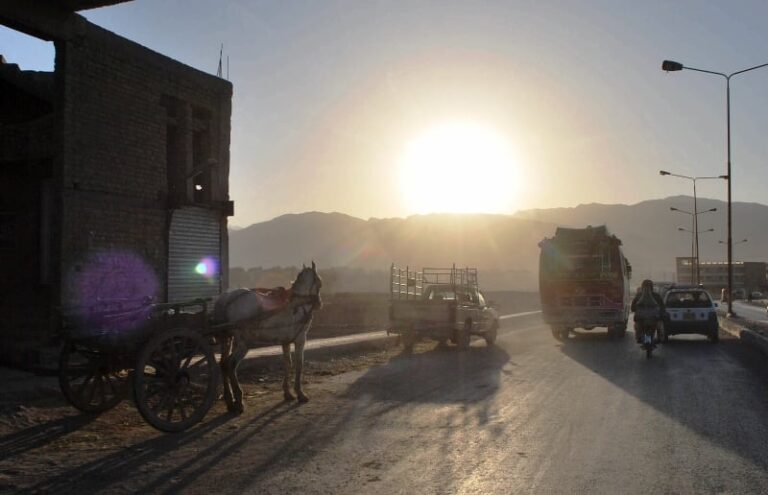QUETTA:
The Balochistan government on Sunday imposed ban on night-time travel on key national highways in the province amid rising incidents of terrorism on the main roads in the recent weeks.
The decision, which has been enforced through notifications issued by various deputy commissioners, prohibited travel from 6pm to 6am on major routes in Kachhi, Noshki, Musa Khel, Gwadar, and Zhob districts.
The decision was taken in a high-level meeting, chaired by Balochistan Chief Minister Mir Sarfaraz Bugti. The meeting also decided to further expand the security forces’ operations against terrorists.
The meeting was attended by high officials, including the chief secretary, additional chief secretary home and the inspector general of the Police (IGP). The participants reviewed the security plan for Eid.
The participants were given a detailed briefing on the overall law and order situation of the province, particularly the situation of national highways. The meeting appreciated the successful operation of the security forces in Kalat.
The chief minister directed the authorities concerned to take effective measures in coordination with all the security agencies to restore peace in the province.
Meanwhile, the government stopped public transport from travelling on the national highways from 6 pm to 6am. The deputy commissioners of Kachhi, Musakhel, Zhob, Panjgur, Gwadar, and Noshki issued notifications in this regard.
Accordingly, travel will not be allowed on Sibi Highway, Zhob-DI Khan Highway, Coastal Highway, Quetta-Taftan Highway, Loralai-Dera Ghazi Khan Highway. Last night, transport from Quetta to Taftan was stopped in Noshki.
According to the provincial Home Department, all transport going from Quetta to Karachi will depart between 6 am and 1 pm, while the transport from Gwadar to Karachi and Quetta will start journey between 5am to 10 am, so that the passengers can reach their destinations before sunset.
The move comes after multiple incidents, including a suicide bombing near a Balochistan National Party-Mengal (BNP-M) rally at Lak Pass in Mastung. Earlier, terrorists killed passengers after pulling them out of the buses on multiple occasions.
The security situation deteriorated in the province with an attack on the Jaffar Express by the terrorists affiliated with the outlawed Balochistan Liberation Army (BLA) earlier this month.
The travel curbs came as the federal government threw its weight behind the Khyber-Pakhtunkhw (K-P) and Balochistan governments in the wake of rising terrorist attacks.
Interior Minister Mohsin Naqvi chaired the second meeting of the counterterrorism committee on Saturday to review the progress on enhancing the capacity of counter-terrorism departments in the provinces.
The meeting was briefed that the approval for the establishment of the National Intelligence Fusion and Threat Assessment Centres had been granted, and work was ongoing to set up the centres at the provincial level.
The meeting also agreed to make explosive materials a federal subject to ensure effective monitoring. Furthermore, it was decided to effectively raise the issue of terrorism with the Afghan government through the Foreign Ministry.
Naqvi told the meeting that the prime minister, the army chief and all the stakeholders were on the same page in combating terrorism. He emphasised that no decision would be taken without consulting the provinces.
The minister stated that it is essential to fully activate the counterterrorism departments at the provincial level for an effective response, and in this regard, all possible assistance would be provided to K-P and Balochistan.

